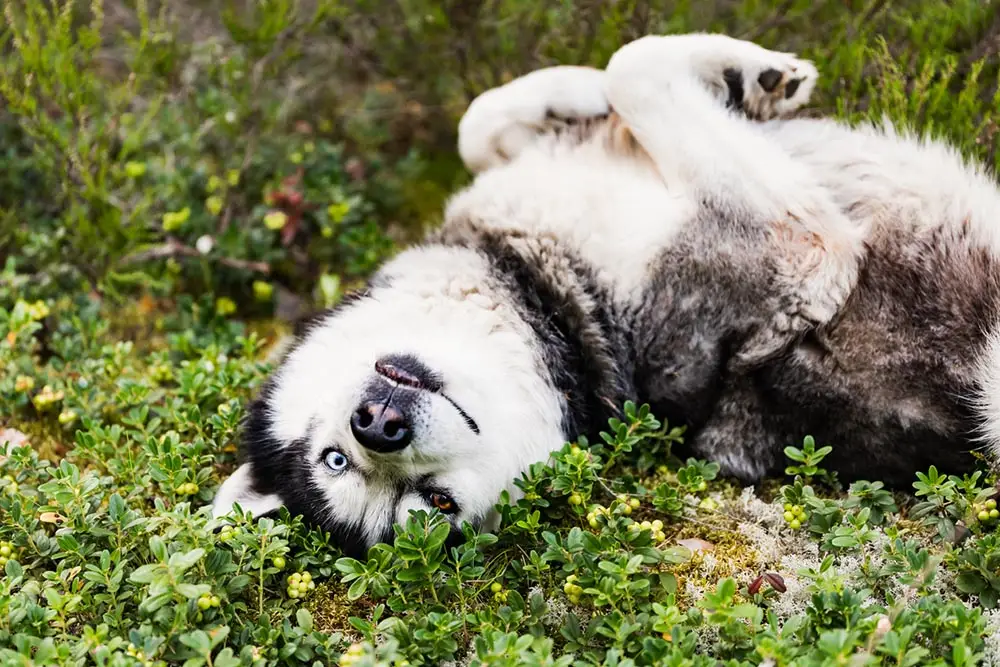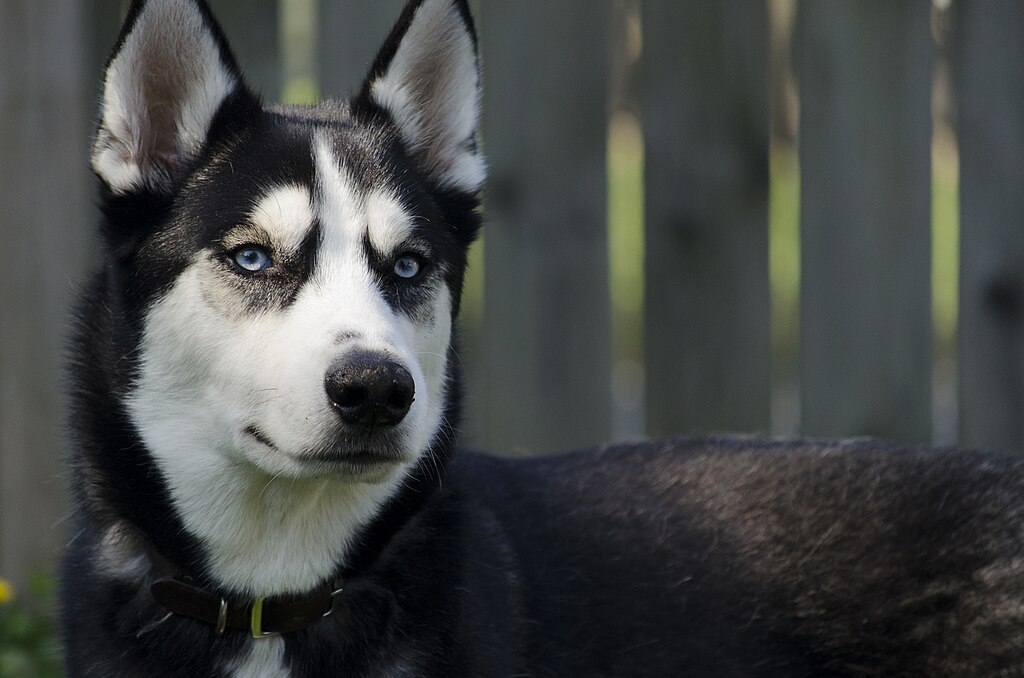Summary
Siberian Huskies are beautiful, energetic, and loyal—but they’re also prone to unique health challenges that every husky parent should know.
Key takeaways:
-
Joint health: Huskies are at risk for hip dysplasia—early screening and joint-supporting nutrition help.
-
Eye issues: Cataracts, PRA, and glaucoma are common; regular check-ups are essential.
-
Neurological health: Epilepsy may cause seizures but can be managed with vet care and diet.
-
Hormonal balance: Hypothyroidism is common in middle-aged huskies but treatable.
-
Skin & coat: Zinc-responsive dermatosis and heavy shedding need proactive care and diet support.
-
Nutrition matters: Fresh, high-quality food with key supplements (omega-3s, glucosamine, zinc) can make a big difference.
-
Routine vet care: Biannual exams catch issues early and keep your husky thriving.
Keep reading to learn symptoms to watch for, vet diagnosis methods, and nutrition tips that can help your husky live a longer, healthier life.
The Siberian Husky is one of the most iconic dog breeds in the world, instantly recognizable by its wolf-like appearance, piercing blue or multicolored eyes, and exuberant personality. Bred originally as a sled dog in the icy regions of Siberia and later Alaska, this working dog is known for its endurance, speed, and loyalty.
But beneath their thick double coat and athletic build, huskies may be prone to certain health conditions that prospective and current husky owners should be aware of. They include:
- juvenile cateracts
- progressive renal atrophy
- hip dysplasia
- epilepsy
- hypothyroidism
In this post, we’ll explore:
- common Siberian Husky health issues
- how to recognize their symptoms
- how veterinarians diagnose these conditions
- how nutrition and proactive care, including supplements and wellness checkups, may make a significant difference.
Whether you’re caring for a senior husky or welcoming a husky puppy into your home for the first time, this resource will help you promote a longer, healthier lifespan for your dog.
Common Husky Health Problems

Here are some of the most common husky health issues that loving pet parents will want to look out for:
Hip Dysplasia
One of the most well-known health issues in large and medium-sized breeds, hip dysplasia affects the hip joint and may lead to arthritis, stiffness, and discomfort. This condition is caused by a genetic malformation in which the ball and socket of the hip don’t fit together correctly. Over time, this may lead to joint degeneration and lameness.
Symptoms often begin subtly with a noticeable decrease in activity, trouble standing, or stiffness in the hind legs, and worsen over time. Vets use X-rays to visualize the joint, often following a physical exam that includes manipulating the limbs to detect looseness or pain.
Maintaining a healthy weight and avoiding obesity is crucial for huskies with hip issues. Nutritional support can help, including diets rich in joint-supporting supplements such as glucosamine, chondroitin, and omega-3 fatty acids. Additionally, early screening, especially for dogs with a family history of hip dysplasia, can allow you to manage the condition more effectively over time.
Eye Conditions: A Major Concern in Huskies
Huskies are particularly vulnerable to a range of eye problems. Several of these are genetic and may be apparent early in life, while others develop as the dog ages.
Juvenile Cataracts
Juvenile cataracts, for example, can develop in a husky puppy as young as 6 to 12 months old. These cataracts cause a clouding of the lens and may interfere with vision. Your vet can detect this during a routine eye exam, often referring you to a specialist for further evaluation.
PRA
Another major concern is progressive retinal atrophy (PRA), a degenerative condition of the retina that eventually leads to blindness. Early symptoms include night blindness and difficulty navigating low-light environments. PRA is usually diagnosed via genetic testing or an electroretinogram.
Corneal Dystrophy
Other eye conditions include corneal dystrophy, which causes the cornea to become cloudy due to a buildup of lipids. While typically painless, it may reduce visibility.
Glaucoma and Uveodermatologic Syndrome
Glaucoma, caused by increased pressure in the eye, is painful and can result in blindness if not treated quickly. Lastly, uveodermatologic syndrome, an autoimmune disease, affects the eyes and skin and can lead to pigment loss and serious vision problems.
Diagnosis of Eye Problems
Diagnosis of eye problems typically involves specialized equipment, blood tests, and sometimes genetic screening. Regular check-ups and prompt action at the first sign of vision changes can preserve your dog’s eyesight as long as possible.
Epilepsy
Idiopathic epilepsy is another condition that affects huskies more frequently than some other breeds. It’s often diagnosed when a husky experiences recurring seizures without an identifiable cause.
Symptoms of idiopathic epilepsy in dogs may include:
- trembling
- drooling
- collapse
- full-body convulsions, often followed by disorientation or lethargy
Your vet may conduct a series of blood tests and neurological exams to rule out other causes like brain tumors, infections, or toxins before confirming a diagnosis of epilepsy.
Treatment typically involves long-term medication to control seizure activity. While epilepsy cannot be cured, it can often be managed effectively, allowing your husky to live a relatively normal life. A nutritious diet and anti-inflammatory supplements like omega-3s may support brain health and reduce seizure frequency.
Hypothyroidism
This is one of the most common health problems in middle-aged and older huskies. Hypothyroidism occurs when the thyroid gland fails to produce enough thyroid hormone, slowing the dog’s metabolism.
Symptoms of hypothyroidism in dogs include:
- unexplained weight gain,
- hair loss
- fatigue
- intolerance to cold
- sometimes skin thickening or skin infections
A blood panel testing for thyroid hormone levels is usually enough to confirm the condition.
Hypothyroidism is treatable with daily medication and does not significantly reduce lifespan when properly managed. Diet also plays a role: huskies with thyroid issues benefit from high-quality foods that support immune and hormonal balance.
Zinc-Responsive Dermatosis
A condition almost unique to the husky and a few other dog breeds, zinc-responsive dermatosis is caused by the dog’s inability to absorb enough zinc through diet alone. Zinc is essential for skin regeneration, immune function, and enzyme production.
Symptoms of zinc deficiency include crusty lesions, thickened skin around the eyes, mouth, and footpads, and excessive hair loss. It may also lead to secondary skin infections.
Your vet may recommend zinc supplements, dietary changes, and regular monitoring to prevent flare-ups. A high-quality, zinc-enriched diet is especially important for huskies with this predisposition.
Supporting Husky Health Through Nutrition

Nutrition is the foundation of pet health. For huskies, who are energetic, athletic, and genetically prone to several conditions, it plays a crucial role in both prevention and treatment.
First and foremost, huskies need a diet that helps support lean body mass to avoid obesity, which is a contributing factor to hip dysplasia, thyroid disorders, and joint degeneration. Look for foods with lean protein sources, healthy fats, and low-glycemic carbohydrates. Avoid fillers like corn and wheat, which can aggravate skin conditions and provide empty calories.
Supplements are often recommended for huskies prone to joint or eye issues. Glucosamine and chondroitin support joint integrity, while omega-3 fatty acids promote brain, skin, and eye health. Zinc supplementation is also crucial for huskies with skin sensitivities or zinc-responsive dermatosis.
For husky owners who want to take nutrition to the next level, fresh food diets offer a tailored, whole-food approach to your dog’s unique needs. JustFoodForDogs provides vet-formulated, nutritionally complete meals using high-quality ingredients without preservatives or artificial fillers.
Fresh food may be helpful for huskies dealing with allergies or digestive or skin sensitivities.
Feeding your Siberian Husky puppy a high-quality diet from day one sets the foundation for a healthy life.
Routine Care and Long-Term Health

Regular check-ups are one of the most important tools for preventing serious health concerns in huskies. Even if your dog appears healthy, a biannual visit to the vet can help catch developing issues before they become serious.
These visits typically include a physical exam, blood tests to monitor organ function and hormone levels, eye and ear checks, and weight assessments. If your dog is aging or shows signs of conditions like hypothyroidism or glaucoma, more frequent visits may be necessary.
Dental exams and cleanings are also crucial. Dental disease may lead to systemic inflammation, affecting the heart, kidneys, and other vital organs.
For husky owners, working in partnership with a trusted veterinarian ensures you can track changes in health over time and make informed decisions about diet, exercise, and care.
Grooming and Coat Maintenance
The Siberian Husky’s double coat is both a blessing and a responsibility. It protects the dog from both heat and cold, but if not properly maintained, it can contribute to overheating, matting, and skin irritation.
Huskies “blow” their coat, that is, shed heavily, twice a year, usually in the spring and fall. During these times, daily brushing is necessary to manage shedding and reduce the risk of skin infections caused by trapped hair or dirt.
Bathing should be infrequent — every few months is usually enough — unless your dog gets particularly dirty. Frequent baths can strip the natural oils from their skin and coat, leading to dryness and irritation.
Keeping an eye out for excessive hair loss, bald patches, or signs of lesions or infection will allow you to catch skin conditions like zinc deficiencies, hypothyroidism, or allergies early. A grooming routine is also an opportunity to check for lumps, injuries, or abnormalities that may require a vet’s attention.
Final Thoughts for Husky Owners

Caring for a Siberian Husky is both a joy and a challenge. These dogs are loyal, intelligent, and energetic, but they require informed care to truly thrive. From proper socialization during puppyhood to structured exercise routines that match their working dog heritage, huskies benefit from consistency, attention, and plenty of stimulation.
Their independent spirit and prey drive may pose training challenges, but early, positive reinforcement methods go a long way. Mental enrichment is just as important as physical exercise; puzzle toys, training games, and interaction with other dogs can help your husky stay sharp and satisfied.
Whether your husky is bounding through snowy fields or curled up beside you on a warm evening, your dedication to their care ensures they’ll be your happy, healthy companion for years to come.
This content is for informational use only and does not replace professional nutrition and/or medical advice, diagnosis, or treatment. It is not a substitute for and should not be relied upon for specific nutrition and/or medical recommendations. Please talk with your veterinarian about any questions or concerns.
Sources
“Hip Screening.” n.d. Siberian Husky Club of America, Inc. https://www.shca.org/hip-screening.
Uhl, Lisa K., Michala de Linde Henriksen, Søren Saxmose Nielsen, Anne J. Gemensky‐Metzler, Lionel Sebbag, and Jeffrey M. Todd. 2021. “Cataracts and Phacoemulsification in the Siberian Husky: A Retrospective and Multicentric Study (2008–2018).” Veterinary Ophthalmology 24 (3): 252–64. https://doi.org/10.1111/vop.12883.
Zeiss, C. J. 2000. “Mapping of X-Linked Progressive Retinal Atrophy (XLPRA), the Canine Homolog of Retinitis Pigmentosa 3 (RP3).” Human Molecular Genetics 9 (4): 531–37. https://doi.org/10.1093/hmg/9.4.531.
MacMillan, A D, G O Waring, W L Spangler, and A M Roth. 1979. “Crystalline Corneal Opacities in the Siberian Husky.” Journal of the American Veterinary Medical Association 175 (8): 829–32. https://pubmed.ncbi.nlm.nih.gov/528326/.
“Glaucoma and Cataracts | Gulf Coast Veterinary Specialists (GCVS).” 2025. Gulf Coast Veterinary Specialists (GCVS) . 2025. https://www.gcvs.com/case-studies/glaucoma-and-cataracts.
P Zubricky, A Balicka, Z Drahovska, M Lapsanska, and A Trbolova. 2025. “Uveodermatological Syndrome in Dogs: A Review of Diagnosis, Management, and Ophthalmic Patient Needs.” Veterinární Medicína 70 (6). https://doi.org/10.17221/10/2025-VETMED.
Riney, Richard. 2022. “Managing Seizures.” Cornell University College of Veterinary Medicine. September 1, 2022. https://www.vet.cornell.edu/departments-centers-and-institutes/riney-canine-health-center/canine-health-information/managing-seizures.
“Breed Info – Springfield Veterinary Clinic.” 2025. Springfieldvc.com. 2025. https://springfieldvc.com/client-resources/breed-info/siberian-husky/.
White, S.D., P. Bourdeau, R.A.W. Rosychuk, B. Cohen, T. Bonenberger, K.V. Fieseler, P. Ihrke, et al. 2001. “Zinc‐Responsive Dermatosis in Dogs: 41 Cases and Literature Review.” Veterinary Dermatology 12 (2): 101–9. https://doi.org/10.1046/j.1365-3164.2001.00233.x.
John. 2023. “Vetericyn.” Vetericyn Animal Wellness. January 22, 2023. https://vetericyn.com/blog/husky-skin-problems/?srsltid=AfmBOoq1r92-MUfH4QEgS40AQBS2Gfg7fU6BrXT-g6zySUN321KA7iR5.

